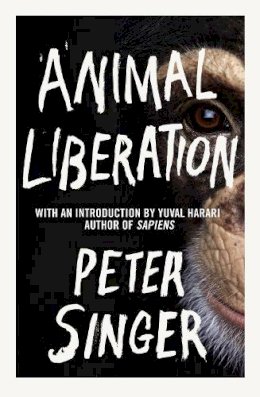
Animal Liberation
Peter Singer
How should we treat non-human animals? In this immensely powerful and influential book (now with a new introduction by Sapiens author Yuval Noah Harari), the renowned moral philosopher Peter Singer addresses this simple question with trenchant, dispassionate reasoning. Accompanied by the disturbing evidence of factory farms and laboratories, his answers triggered the birth of the animal rights movement.
'An extraordinary book which has had extraordinary effects... Widely known as the bible of the animal liberation movement' Independent on Sunday
In the decades since this landmark classic first appeared, some public attitudes to animals may have changed but our continued abuse of animals in factory farms and as tools for research shows that the underlying ideas Singer exposes as ethically indefensible are still dominating the way we treat animals. As Yuval Harari’s brilliantly argued introduction makes clear, this book is as relevant now as the day it was written.
Product Details
About Peter Singer
Reviews for Animal Liberation
Peter Tatchell
Ecologist
